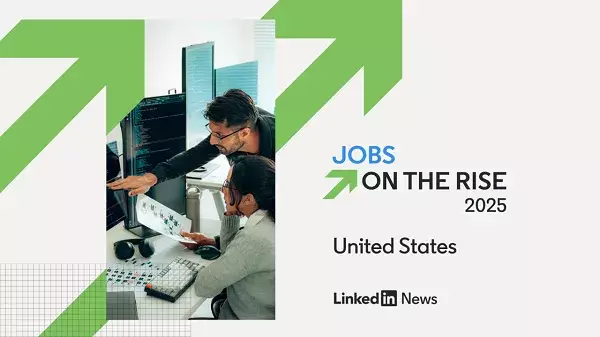As we approach 2025, the job market is undergoing a significant transformation that is heavily influenced by advancements in technology, particularly artificial intelligence (AI). LinkedIn’s “Jobs on the Rise” report has provided valuable insight into the changing landscape of employment opportunities, revealing the types of roles that are not only gaining traction but are crucial for organizations aiming to stay competitive. The report highlights positions such as AI Engineers and AI Consultants, indicating a strong and urgent demand for professionals who can navigate the complexities of AI technologies. This trend challenges job seekers to consider roles that blend technical expertise with a nuanced understanding of business processes.
Interestingly, the report also emphasizes the continued relevance of roles that cannot be easily automated. Professions like physical therapists and travel advisors illustrate a key point: while AI is becoming more sophisticated, there remains a vital need for human interaction and expertise in many fields. These jobs rely on nuanced understanding, empathy, and personalized service—qualities that machines are not equipped to replicate. The coexistence of AI-driven positions and human-centric roles paints a comprehensive picture of the workforce. Individuals looking to pivot in their careers may find opportunities in both categories but must recognize the importance of fostering innate human abilities alongside technological proficiency.
The evolution of the workforce necessitates a reassessment of the skills that are becoming increasingly valuable. According to the report, while AI can significantly assist in many areas, it cannot fully replace the analytical and decision-making abilities that humans bring to the table. Therefore, job seekers should focus on developing skills that are complementary to AI technologies, such as critical thinking, creativity, and emotional intelligence. These competencies not only enhance an individual’s employability but also contribute to a more dynamic workforce that can adapt to the rapid changes wrought by technological advancement.
LinkedIn’s report serves as both a guide for prospective candidates and a resource for employers striving to understand and meet their hiring needs. For job seekers, it offers a strategic overview of where opportunities lie, enabling them to align their skills and ambitions with market demands. For employers, the analysis sheds light on talent acquisition strategies, emphasizing the importance of identifying individuals who can blend technological savvy with essential human-centric skills.
The career landscape in 2025 presents both challenges and opportunities driven by the interplay of AI and human capabilities. Job seekers should be proactive in acquiring knowledge in AI while preserving the uniquely human attributes that remain irreplaceable in various professions. By embracing this dual focus, individuals can position themselves favorably in a rapidly evolving job market, ready to meet the demands of tomorrow’s employers. As we move forward, the ability to adapt and innovate will undoubtedly be the hallmark of successful career trajectories in the years to come.


Leave a Reply
You must be logged in to post a comment.